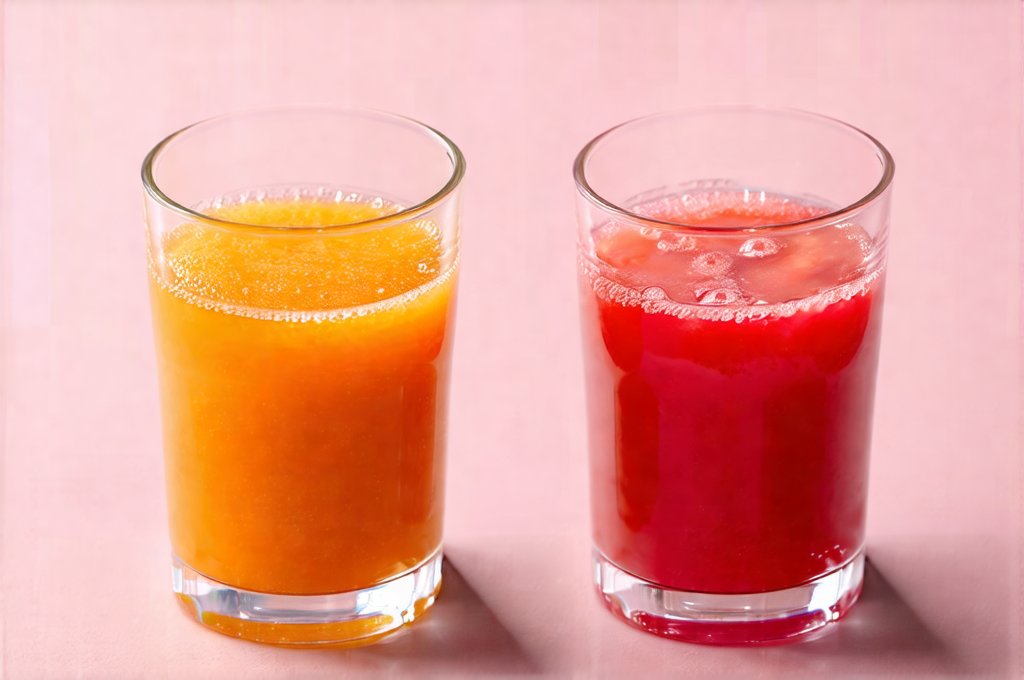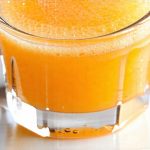Juice cleanses have surged in popularity as a quick-fix solution for detoxification and weight loss, often promising renewed energy and a flatter stomach. However, many individuals experience a frustrating side effect after completing these cleanses: rebound bloating. This isn’t necessarily an indication that something went wrong with the cleanse itself, but rather a natural physiological response to drastically altered dietary patterns. Understanding why this happens requires delving into how our bodies react to extreme restriction and then reintroduction of “normal” foods, as well as appreciating the complex interplay between gut bacteria, fluid balance, and digestive processes. The expectation of immediate transformation often overshadows the reality that significant dietary changes can temporarily disrupt these delicate systems, leading to uncomfortable – but usually temporary – bloating.
The appeal of juice cleanses stems from a desire for rapid results and perceived health benefits. But it’s crucial to remember that our bodies are remarkably efficient at self-detoxifying through organs like the liver and kidneys. Juice cleanses don’t magically enhance this process; they simply remove potential stressors (like processed foods) while providing easily digestible nutrients – often at a drastically reduced caloric intake. This can create a temporary feeling of lightness, but it also sets the stage for rebound effects when normal eating resumes. It’s important to approach these types of dietary interventions with realistic expectations and an awareness that sustainable health requires long-term lifestyle changes, not just short-lived restrictions. Can gentle movement might offer a better alternative for digestive support.
What Causes Rebound Bloating?
Rebound bloating isn’t some mysterious affliction; it’s a predictable consequence of several interconnected physiological factors. Primarily, the extreme restriction inherent in juice cleanses impacts our digestive system significantly. When you drastically reduce food intake and eliminate fiber – common in most juice cleanses – your gut bacteria undergo shifts. The beneficial bacteria that thrive on dietary fiber diminish, while others may proliferate. This imbalance, known as dysbiosis, can lead to increased gas production when normal foods are reintroduced. Furthermore, the digestive system “rests” during a cleanse; enzyme production decreases and intestinal motility slows down. Reintroducing solid food forces the system to quickly ramp up again – often resulting in inefficient digestion and bloating.
Another key contributor is fluid retention. Juice cleanses often lead to rapid water weight loss due to reduced sodium intake and increased urination from diuretic fruits and vegetables. However, when you resume a regular diet that includes sodium and carbohydrates, your body naturally rehydrates and replenishes glycogen stores – both of which cause water retention. This isn’t necessarily bad; it’s simply the body restoring its normal fluid balance. But it can manifest as bloating, especially if the transition back to solid food is abrupt. It’s also worth noting that the psychological aspect plays a role. The anticipation of negative effects – or even just focusing on your stomach – can amplify sensations and contribute to perceived bloating. Can hydration during this transition is key.
Finally, the rapid reintroduction of foods after restriction can overwhelm the digestive system. Imagine going from a very limited diet to one with diverse ingredients; your body needs time to adjust. Eating large portions or consuming triggering foods (like those high in FODMAPs) too quickly exacerbates this issue, leading to discomfort and bloating. The key takeaway is that rebound bloating isn’t a sign of failure, but rather a natural adjustment period. It highlights the importance of mindful refeeding strategies after any significant dietary restriction. GERD and bloating can sometimes be exacerbated by these changes as well.
Understanding Gut Microbiome Shifts
The gut microbiome—the trillions of bacteria residing in our digestive tract—plays an enormous role in overall health and digestion. Juice cleanses, by drastically limiting food diversity, can disrupt this delicate ecosystem. – Fiber is a primary food source for beneficial gut bacteria. Its absence during a cleanse leads to their decline. – The resulting imbalance, dysbiosis, favors gas-producing bacteria, increasing bloating when solid foods are reintroduced. – Rebuilding the microbiome takes time and requires consistent intake of prebiotic (fiber) and probiotic (live bacteria) rich foods.
The speed at which the gut microbiome recovers varies depending on individual factors like diet before the cleanse, length of the cleanse, and post-cleanse dietary habits. Introducing fermented foods like yogurt, kefir, or sauerkraut can help repopulate the gut with beneficial bacteria, but this is just one piece of the puzzle. A long-term commitment to a fiber-rich diet is essential for sustained microbiome health. It’s also important to remember that everyone’s microbiome is unique; what works for one person might not work for another. Can morning routines can support long term gut health.
The Role of Sodium and Water Retention
As mentioned previously, juice cleanses often result in initial water weight loss due to reduced sodium intake and the diuretic effect of certain fruits and vegetables. Sodium plays a critical role in regulating fluid balance within the body. When sodium levels drop, the kidneys excrete more water. This can feel good initially – contributing to the perception of rapid detoxification – but it’s not sustainable. – Upon reintroducing foods containing sodium (most processed and even whole foods contain some sodium), the body retains more water to restore electrolyte balance. – Carbohydrates also influence water retention because they are stored as glycogen, which holds onto several times its weight in water. – This isn’t harmful; it’s a natural physiological response. However, rapid rehydration can feel like bloating.
Minimizing drastic shifts in sodium intake post-cleanse is crucial. Gradually increasing sodium consumption over a few days allows the body to adjust without experiencing excessive water retention. Similarly, moderating carbohydrate intake initially can help prevent a sudden surge in glycogen storage and associated fluid buildup. Staying adequately hydrated throughout the process is also essential— paradoxically, drinking more water can actually help reduce bloating by signaling to your kidneys that it’s safe to release excess fluids. Can regular walking supports digestion and overall well-being.
Mindful Refeeding Strategies
The transition back to solid food after a juice cleanse should be gradual and strategic. Abruptly reintroducing complex meals can overwhelm the digestive system leading to significant discomfort. Here’s how to approach mindful refeeding: 1. Start with easily digestible foods: Begin with bland, low-fiber options like cooked vegetables (carrots, zucchini), white rice, or broth. This allows your digestive system to “wake up” without being overloaded. 2. Gradually increase fiber intake: Introduce small amounts of high-fiber foods over several days. Examples include oats, berries, and leafy greens. Pay attention to how your body responds and adjust accordingly. 3. Prioritize portion control: Avoid large meals, even if you’re feeling hungry. Smaller, more frequent meals are easier for the digestive system to handle. 4. Identify food sensitivities: If you notice bloating after eating specific foods, consider eliminating them temporarily to see if symptoms improve. This may indicate a sensitivity or intolerance.
Avoiding common bloat-inducing foods – such as beans, lentils, broccoli, and carbonated beverages – during the initial refeeding period can also be helpful. Listening to your body and adjusting your diet based on its signals is paramount. Remember that rebound bloating is often temporary, but mindful refreeding strategies can significantly minimize discomfort and promote a smoother transition back to normal eating. Can GERD symptoms sometimes appear during dietary changes.
It’s important to reiterate that juice cleanses are not inherently harmful for everyone, but they should be approached with caution and realistic expectations. Prioritizing sustainable lifestyle changes – including a balanced diet rich in whole foods, regular exercise, and stress management – is far more effective for long-term health and well-being than relying on quick-fix solutions like juice cleanses. If you experience persistent or severe bloating after a cleanse, consult with a healthcare professional to rule out any underlying medical conditions. Can GERD make you feel unwell?


















